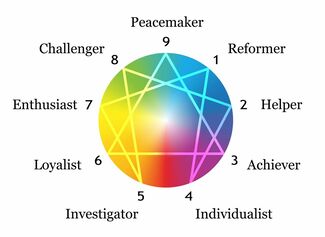
You Can’t Fix What you Can’t See
“Everything was going so well. I was coaching at every opportunity. My team seemed to be on board and enjoying this new way of working. Work was progressing well, and then the system broke and there was panic all around us. The board was on my boss’s back, my boss was on my back, month-end was looming, the team was like rabbits looking into headlights and I just lost it. I’m not proud of myself, but I went right back to being the manager I had always been.”
This has happened to every manager who every tried to develop a new way of leading. After all, your natural style (like your personality) is a product of both nature and nurture – on the one hand, your personality has a significant impact on your natural way of managing (nature), while your experiences of being managed will also have impacted on your style (nurture). In many ways, the easier influences to manage are those related to your experience – you can evaluate how you have been managed in the past and choose to adopt or reject various practices based on your values and what you have learned about what brings out the best in people. It is those practices and behaviours that you default to when you are at your worst that will trip you up.
There are multiple challenges with default behaviours that sit within your personality. Firstly, they are often unconscious, and you only realise you have done them after the fact – when you go “Oh crap, I did it again!” The second issue is that they tend to be defensive behaviours – that is, they are unconsciously intended to protect you in some way (and they may well have been very effective in the past). If they are intended to protect you, it implies that you are experiencing something that you regard as a threat – to your survival, reputation or status Thirdly, the nature of the threat you experience will vary according to your personality – and so will the resulting behaviour.
Personality, however, is not an excuse. As a leader, you do not have the liberty to dismiss your bad behaviour as “that’s just how I am”. You have a responsibility to constantly be working towards self-mastery, and self-mastery cannot come without growing your self-awareness, so how do you do this?
Personality Profiles and Emotional Intelligence Assessments
I love the enneagram – but that is only because I have used it for years and I speak it fluently (although my knowledge and understanding of it grows every day). And there are also other great personality profiles such as the Myers-Briggs Type Indicator, the Strength Deployment Inventory, DISC, INSIGHT, and many others. In addition, the Emotional and Social Competencies Index and other emotional intelligence indices will also give useful insight. All of these provide great insights into how you are likely to behave under pressure – but the more useful information is WHY. Why do you behave in that way? What is your fear – since all defensive behaviour is, by definition, fear-based. When you understand what you fear, and why you fear this, then you become better able to modify your responses in terms of thoughts, emotions and actions.
Reflection
In my coaching I have found myself working with a lot of executives who struggle with anxiety that is severely impacting on their quality of life. One of the tools that comes out of the Cognitive Behavioural school of psychology is this reflection worksheet (with credit to psychpoint.com), which is every bit as useful when your anxiety is episodic rather than pervasive.
Reflection is a critical aspect of how we learn. When you have behaved badly under pressure it is because you are feeling anxious – and your reasons for feeling anxious are not the same as everyone else’s. It is really useful to work through the worksheet in order to understand what negative and unhelpful beliefs are fuelling your anxiety, and replace them with more balanced thoughts that will enable you to respond in a more constructive way. If you do this every time you trip up, over time you will change your habitual thoughts about a variety of situations and become better as responding in a balanced way to strain and pressure are work, resulting in being better able to continually grow as a manager whose default style is coaching.
References:
https://www.psychpoint.com/mental-health/worksheets/cbt-for-anxiety/


 RSS Feed
RSS Feed


